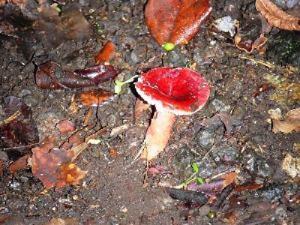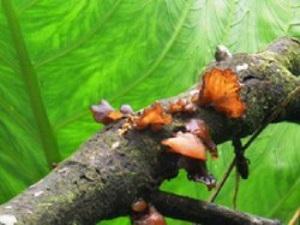Rosemary Tonjock
Other projects
29 Apr 2013
Establishment of a Genebank Collection for Macro-Fungi of Conservation Importance in the Mount Cameroon Region, and Cultivation Trials of Selected Species
The aims of this project are:
· To carry out ecological studies of macro-fungi through the use of the national strategy for biodiversity conservation and the International Union for Nature Conservation criteria.
·To document the medicinal and edible mushrooms use by local communities through ethnomycological studies and market surveys.
· To provide mushroom conservation education to the local communities, pupils and students and the general public

Mount Cameroon is one of the most biologically diverse sites in Africa Cable and Cheek, 1998 and Conservation International, 2007 rank it as a biodiversity (http://www.biodiversityhotspots.org). However, very little work has been done on the macro-fungi in this region. Some mushrooms form mycorrhizal association with host plants and it is evident that health of forest trees depends on this association while the vast majority of the other fungi decompose dead plant materials and recycle nutrients in the forest.indigenous knowledge about edible and medicinal mushrooms is under explored compared to plants. Ethnomycological studies as well as cultural associations of mushrooms would help to document, study, understand and disperse indigenous mycological knowledge, which will lead to its conservation and sustainable exploitation of this valuable natural resource.

Many edible and medicinal mushroom naturally found in Cameroon is lost and the ever ongoing deforestation and climate change definitely contribute to loss in biodiversity, which in many cases are irreversible. Therefore, it is critical that a study of the nature I am proposing is conducted for many direct and implied reasons for its sustainability and for conservation.
The fact that indigenous knowledge on edible and medicinal mushrooms will be documented, it will help in the preservation on the uses of these mushrooms from generation to generation. Documented knowledge from ethnomycological research could lead to scientific studies of identified fungi either for their use in cultivation, natural product research or biotechnological applications.Awareness will be created on the need and simple practical measures for conservation of edible and medicinal mushrooms and this will be done through the awareness/educational campaign planned in this project.